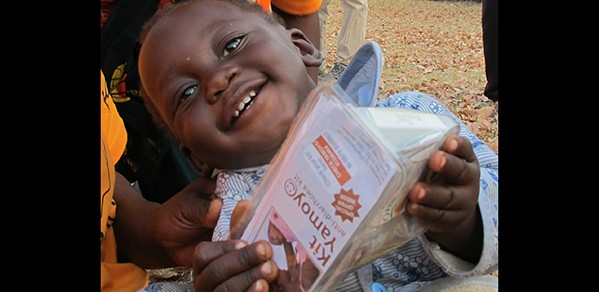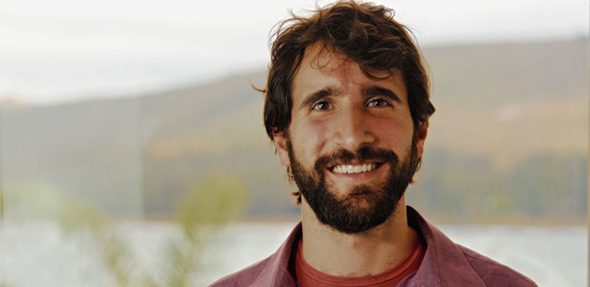
How do you get medicines to the poor in hard-to-reach areas?
Our aim with this roadmap is to empower people to catalyse system change so that it expands access to healthcare.
Paulo Savaget
This is an issue which has been looked at by Gates Cambridge Scholar (2015) Paulo Savaget as part of an action research project in Zambia with the charity ColaLife. The charity aims to emulate the value chains of fast-moving consumer goods, such as Coca-Cola, to get much needed over-the-counter medicines to people in remote areas in low-income regions.
Paulo, who is currently studying for a PhD in Engineering at the University of Cambridge, and his supervisor Professor Steve Evans, Director of Research in Industrial Sustainability, have won a $20,000 award from the IBM Center for The Business of Government for their project titled Catalysing Access to Medicines by Emulating Value Chains of Fast-Moving Consumer Goods.
The award involves creating a roadmap for ‘sustainability hacking’ – finding ways around the bottlenecks in social and technological systems that achieves immediate results. The roadmap will be based on the action research project carried out in Zambia, with the overall aim being to use it to scale up the project across other Sub-Saharan countries.

Paulo Savaget
For his PhD, Paulo interviewed ICT hackers and cybersecurity experts to see how hacks can be applied to areas such as health, education, gender empowerment and to combat corruption. After developing his new concept, Paulo has been working with sustainability hackers to understand how they have been addressing some of our most pressing sustainability challenges.
The action research project in Zambia came about because of the difficulties faced by people in remote areas trying to get access to over-the-counter medicines. Diarrhoea, for example, can often be treated with over-the-counter medicines but is the second biggest killer of children under five in Sub-Saharan Africa.
The project looked at how medicines could piggyback on the distribution networks of Coca-Cola, which in comparison has no problem getting into rural areas. Medicines were initially designed to fit in between Coke bottles. Then the project mapped the value chain for fast-moving consumer goods to the value chain for diarrhoea treatment. The project significantly increased access to the medication in Zambia.
The main bottleneck for getting access to medicines is poor infrastructure and governance. Paulo says the mainstream and ideal approach would be to improve the country's infrastructure to provide the medicines through a comprehensive healthcare system. However, this would also take many years or might not happen at all. That is where hacking comes in as it circumvents the bottleneck to arrive at a more immediate solution that is ‘good enough’.
“Our aim with this roadmap is to empower people to catalyse system change so that it expands access to healthcare,” added Paulo. “We need to understand how the immediacy of hacks can be fostered systematically."
The roadmap will trace how the value chains used to distribute Coca-Cola could be emulated, including manufacturers, shopkeepers, community health workers, government agencies and many other stakeholders. Paulo is also looking at things which could have an impact on accessibility, for instance, political changes, which are harder to control, and policy frameworks and regulations which could be influenced. In addition, he is considering what else could make a difference, for instance, ‘nudge theory’ to change behaviour and human-centred design.
This article has been edited from the Gates Cambridge website.

